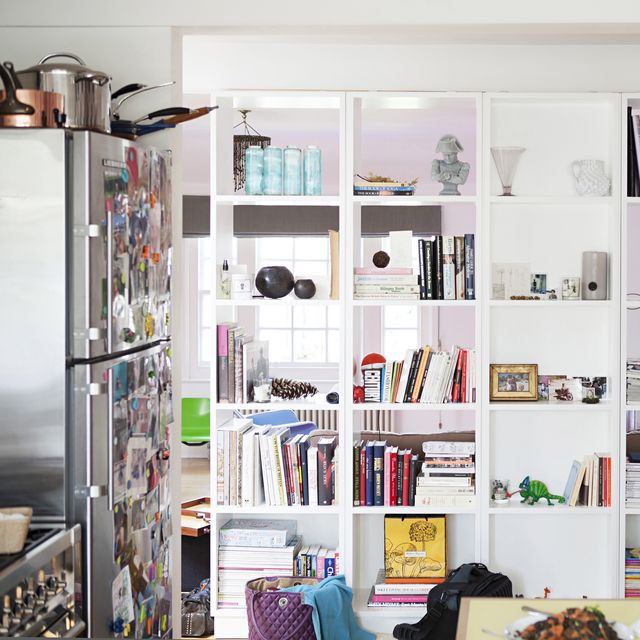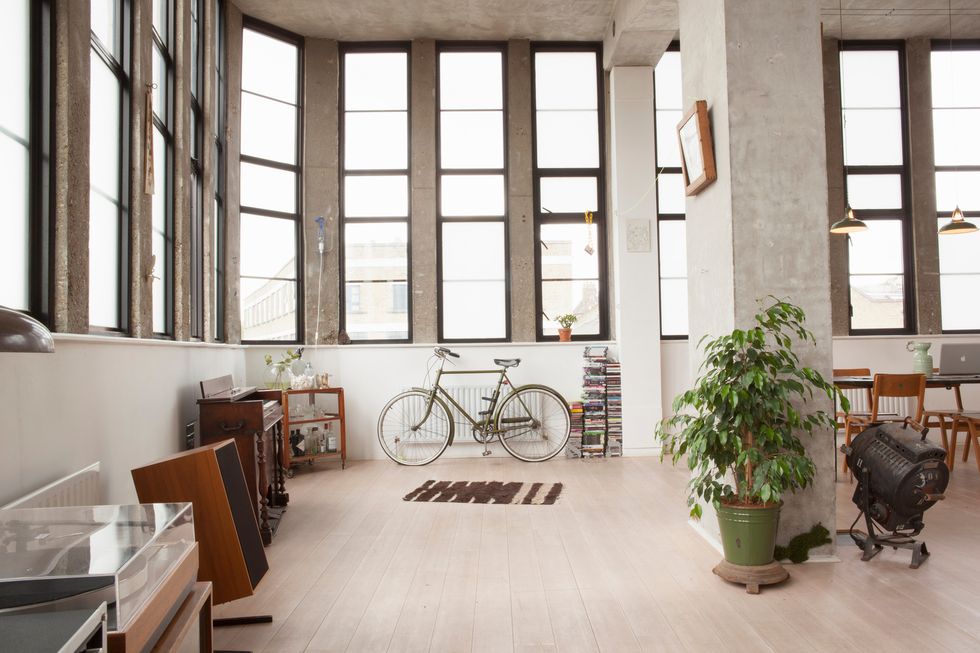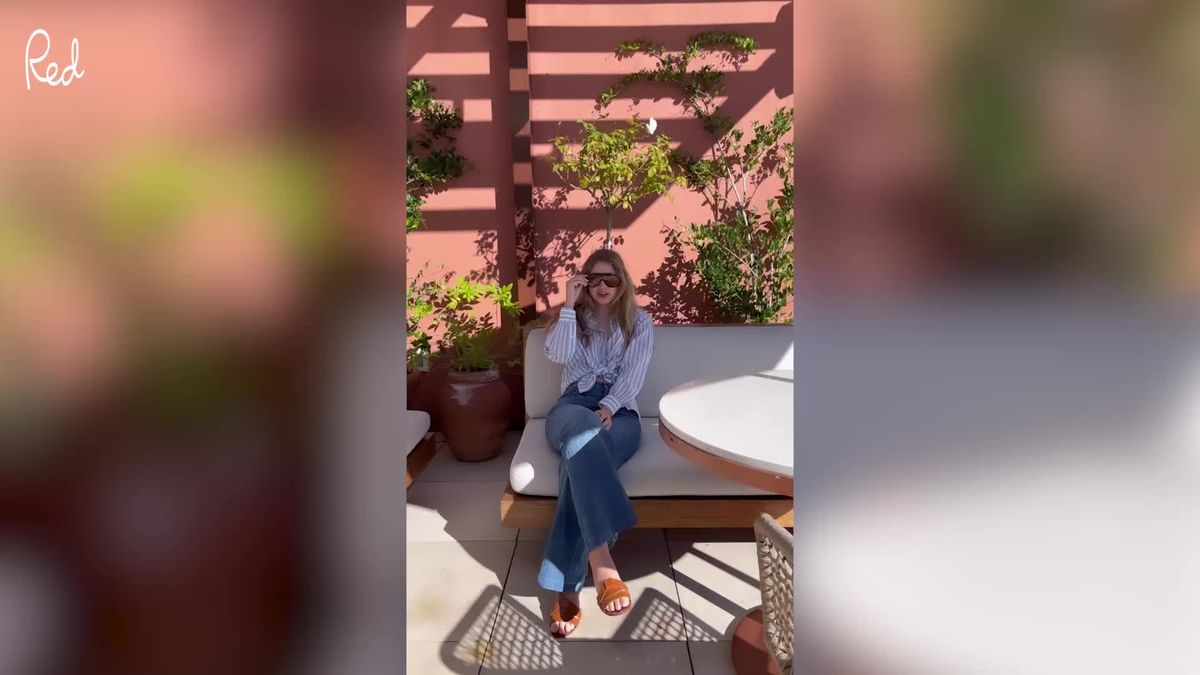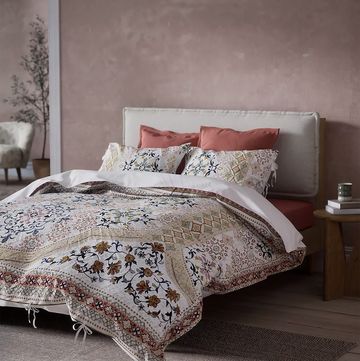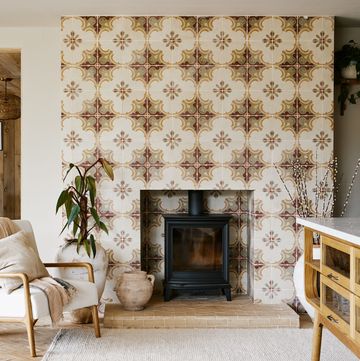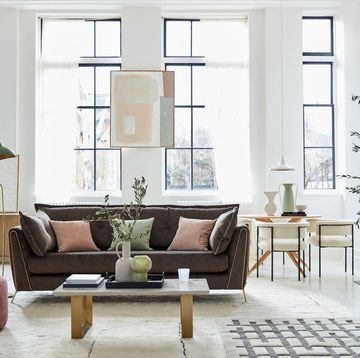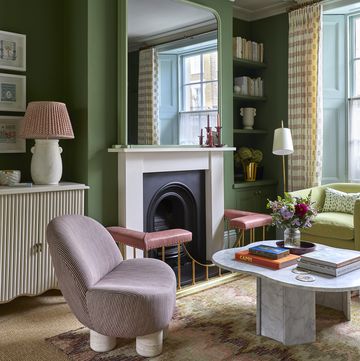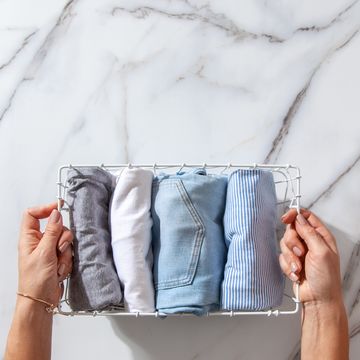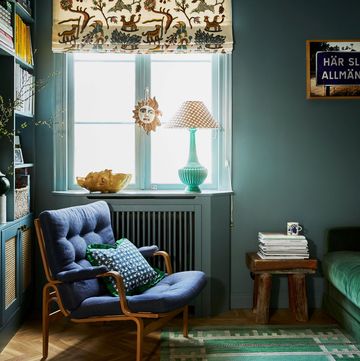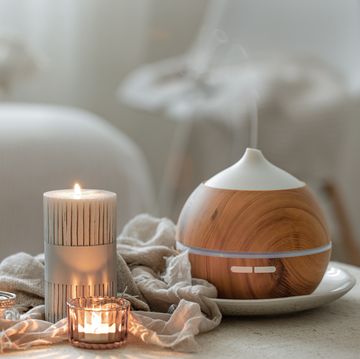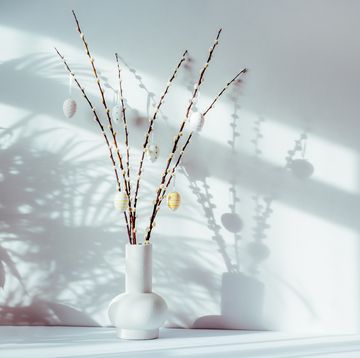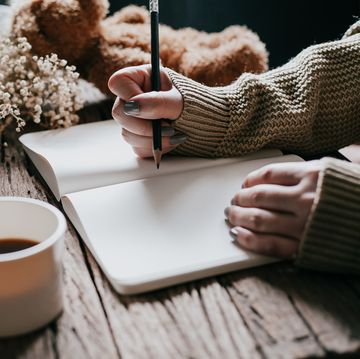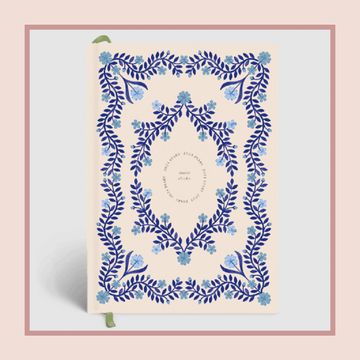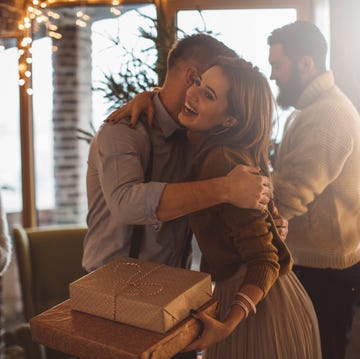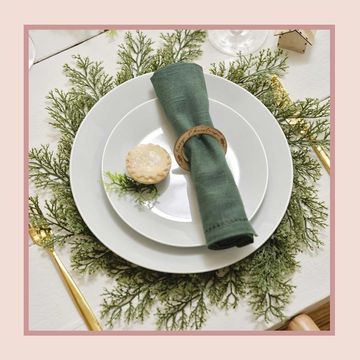How many times have you started a house clear-out with gusto, only to be stalled a few minutes in with the major conundrum: “But what if I need it?”
Guilt, indecision and the fear of losing something vital can all scupper our efforts to declutter, and often it feels easier to simply shove everything back into your cupboards than confront such feelings.
Holding on to items “just in case” is extremely common, according to experts in home organisation. “It’s a natural first reaction for many” says Vicky Silverthorn, author of Start With Your Sock Drawer. “I see it as a built-in protective instinct, a fear of loss, but once recognised these feelings can be altered”.
Whether it’s a fancy dress costume you’ve had for 15 years, or the bread maker that’s been gathering dust on your kitchen counter, it’s certainly possible to let go of the anxiety and ditch superfluous items for good.
Adjust your mindset
Firstly, you need to change the way you approach your clear-out. Instead of asking yourself whether you might need an object in the future, ask “could I use this space for something more worthy?” or “can I live without this?” By following this process, you will often realise that the benefits of freeing up space generally outweigh any imagined regrets in the future.
Decluttering pro Kate Ibbotson says you can move from a fearful mindset to a positive one by thinking altruistically. “People imagine scenarios where they’ll experience real upset after getting rid of an item they suddenly need” she says. “I encourage them to think about the pleasure they could give someone else by donating the item and allowing it to be used right now.”
Be wary too of keeping of hold of objects based on an idealised version of yourself: the one who cranks up the smoothie maker every morning and has time to actually use the Swiss Ball. With these things, be honest and ask yourself when you plan to use them in next month — if the answer is you won’t, then they're cluttering up space unnecessarily.
Remember you can replace things
One of the main reasons we cling on to possessions is because we worry about the extravagance of having to replace them at a time when they’d actually come in useful.
It can be hard to shake up your approach to material possessions, particularly if you were brought up with a drilled-in “waste not, want not” mantra.
While there’s certainly a lot to be said for taking a sustainable, less wasteful approach to your possessions, this can become problematic if it means you’re hoarding unnecessary items. For example, it takes up a lot of space to stash away old furniture that “you might need” one day, have 30 dinner plates when you only host a big party once every five years or cling on to masses of computer wires and plugs that you can’t match up to any device.
Remember that these days you can replace such items at little to no cost. For example, rid yourself of unwanted furniture on Freecycle or Gumtree, so a local person can get immediate use of it, and should you ever desperately need, say, a side table in future, you can look there to pick up a second hand one at minimal cost.
Items such as dinner plates or extra cutlery can be borrowed from friends or neighbours on the odd occasion you need them; it’s a great bonding exercise!
As for cables and wires, do a thorough audit and work out exactly which ones match up to gadgets you still own, then label each one for fuss-free searching. In the unlikely event that you accidentally let go of a vital lead, you can always order a replacement online.
“Occasional use” items are fine
Don’t panic — you don’t have to get rid of everything that is only used sporadically. All the decluttering experts we spoke to said it’s ok to have some possessions that are infrequently used, as long as you truly love or need them.
“I don’t believe you should impose a rule saying ‘If you haven’t used it in six months, get rid’” says Kate. “You may only wear your favourite cocktail dress once a year, but it’s still a valuable addition to your wardrobe.”
However, if any item only gets used occasionally — whether that’s a fabulous hat for weddings or the camping equipment you dig out every summer — it shouldn’t take up your prime storage areas.
“In your most accessible storage spaces you should have only the belongings you need in your daily life” says Vicky. “I know that sounds obvious, but often people’s kitchen cupboards are filled with pancake mixers, enough mugs to cater for 40 people and giant platters that only come out once or twice a year”
Instead, says Vicky, you should box up, label and neatly store occasional items elsewhere, such as hard-to-reach or high up cupboard spaces that are tricky to access day-to-day.
And, if you have a drawer that’s so messy you get heart palpitations every time you look at it, full of occasional use items such as sellotape, batteries, stamps and pens, then take action.
“Categorise objects with a system that makes sense to you and keep them together so you know where to find them” says Helen Sanderson, author of the Home Declutter Kit. “For example, keep all technology in one place, stationery another, instruction manuals and guarantees elsewhere.
“I recommend getting drawer dividers or little plastic containers to section up the drawer. Travel plugs, beach clothes and other things that only get used for holidays can go in your suitcases. It’s well worth taking the time to organise your storage, you’ll be more than compensated with the time and stress you save looking for things.”
End the accumulation
In a consumer-driven culture, a huge amount of us have far too much stuff.
“So many clients have the contents of a six-bedroom home squashed into their three-bedroom home; we tend to squeeze as much as we can in our space so unnecessarily!” says Vicky.
If you are someone who finds it hard to let go of possessions, then halting this accumulative mindset will help you immensely.
“Assess the importance you are putting on ‘things’ when truly the importance should be on people, life experiences and creating memories” says Vicky.
“I believe that many people could halve their belongings without it having any impact on their everyday lives - apart from the fact they would suddenly have enough space!”
